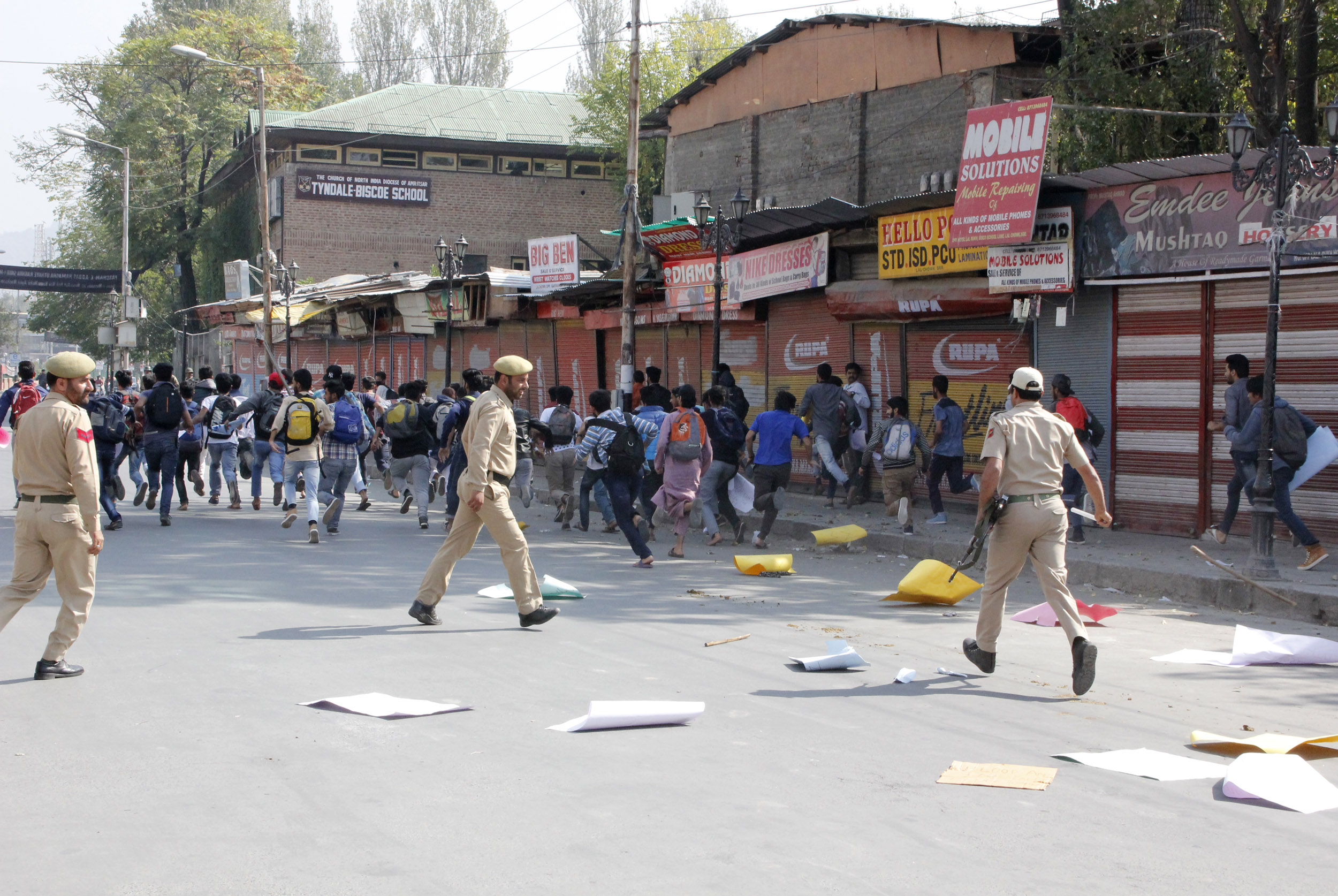Pentagon Tells India-Pakistan Militaries to Reduce Tensions; Meanwhile, In Kashmir...
NEW DELHI: The United States has now adopted a proactive posture viz a viz India and Pakistan. The Pentagon fielded its Press Secretary Peter Cook to say,"we are aware that the Indian and Pakistani militaries have been in communication with one another and we encourage these continued discussions between India and Pakistan as a means to reduce any tensions that may be out there.”
He further added that US officials are in contact with both countries, a significant departure from the Washington line that maintained it was for India and Pakistan to resolve their differences.
Cook said US Defense Secretary Ashton Carter and the US government hoped that India and Pakistan would make an effort at communication, and address the concerns by lowering tensions. "That is certainly a view that he (Carter) shares with others in the US government," he said.
America's view on non-proliferation of nuclear weapons is clear, Cook said."This is obviously something that this government and others around the world want to keep nuclear weapons out of the hands of terrorists. And that is something that our views on that are quite clear," Cook added.
Similar concerns were echoed in Geneva where a spokesperson for the UN High Commissioner for Human Rights Zeid Ra’ad Al Hussein was “seriously concerned about the human rights situation in Jammu and Kashmir, as well as the rising tensions between India and Pakistan.” The official reiterated the UN body's call for unfettered and unconditional access to both Jammu and Kashmir and Pakistan-administered Kashmir to enable it to independently and impartially monitor the human rights situation."We stand ready to support efforts to de-escalate the situation," the spokesperson added.
The ratcheting up of war prospects between India and Pakistan have moved the spotlights from Kashmir, for the moment at least, although global statements continued to link the Valley with the heightened tensions between the two neighbours.
There has been no let up in Kashmir, that remains in a state of siege with the toll of deaths having crossed 90, and pellet injuries being reported from different parts of the Valley on a daily basis. Doctors in Kashmir point out that while the number of injured has gone down, it is by no means over, with daily protests and police firing bringing in casualties.
The Valley is under the 89th day of curfew today, with the Hurriyat leaders in extended jail terms. Ageing leader Ali Shah Geelani is the only one not in solitary confinement in jail or police detention, but under house arrest. His son is currently in jail.
The Mehbooba Mufti government has ordered large scale crackdown on protestors with the government working overtime to make comprehensive lists for arrests under the Public Safety Act. Figures in the media citing official sources suggest that at least 3000 persons have been arrested under PSA with a fresh list of government employees now being put together for having allegedly joined in protests.
The security forces have been carrying out raids in different parts of the Valley with the target being the youth many of whom are in hiding to avoid arrests. There is widespread terror across the Valley, according to the locals, with the state government leading the charge with the paramilitary and police forces.
The Kashmir media that has been targeted by the Chief Minister has been protesting almost continuously against efforts to curb the reportage by preventive action. The offices of major newspapers were raided by the police earlier, and the publication of Rising Kashmir, Greater Kashmir and others stopped. After three days these were allowed to resume but the journalists refused until the CM assured them that the media would not be acted against. However, shortly after Mehbooba Mufti banned some of the local television channels. And now just a couple of days ago, a small Valley newspaper Kashmir Reader has been shut down and banned publication. There has been no word from the state government, and as the editor of the newspaper has written and said, he had been given no warning, or explanation before or now.
The Valley is in ferment as the Delhi-Srinagar policy is clearly not to yeild. As a senior academic from Srinagar said “not to yeild means not to talk and continue the tough line.” Tough action against protestors is the directive from the centre, being followed to the letter by the CM. There has been no effort since the visit of the all party delegation to move on the recommendations, the primary one being to move for unconditional talks with all stakeholders.
Sources said that while nothing is being said officially, New Delhi is clear that there is no room for talks at this stage. And that there is “no question” of speaking with the Hurriyat and other separatist leaders with the effort being to marginalise and isolate them completely. Mirwaiz Umar Farooq is in jail as is Yasin Malik, with the former not being allowed to lead the Friday prayers now. The Opposition parties in Parliament, and after the visit to Kashmir in the all party delegation had insisted that the government should bring down the tensions, and open talks with all. Clearly the government is in no mood to listen.
The alienation in the Valley is at alarming levels, with elected representatives of the ruling Peoples Democratic Party and the National Conference together in pointing out that they had become irrelevant. “Not just us, even the Hurriyat is now fast becoming irrelevant, and we are worried what will fill this vacuum now,” said a former PDP MP. “Kashmir cannot be contained by force without serious repercussions for all concerned,” he pointed out.
(Cover Photograph Basit Zargar: young students from Old Srinagar staged a sudden protest with handwritten placards,“Stop doing politics on exam, Exam boycott” until chased away by the police)





